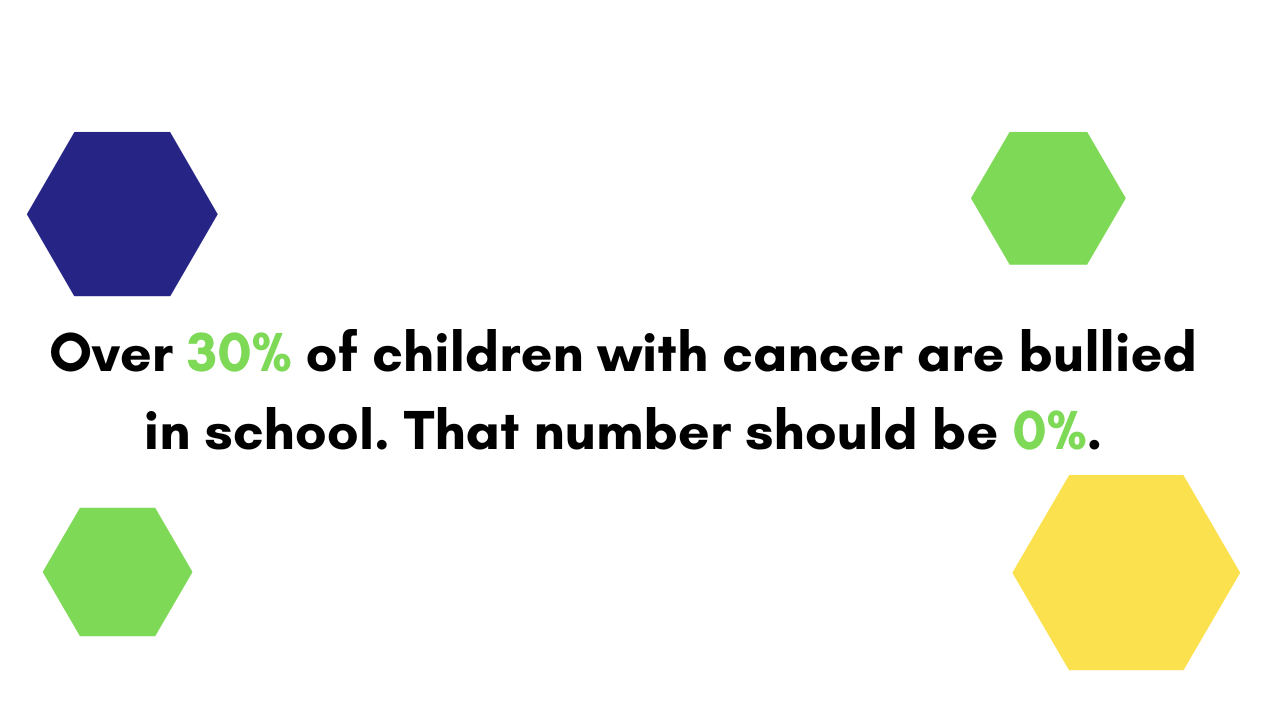Children with Cancer are at Increased Risk for Bullying in School
By Allie Neenan, PhD, LP | Last updated 12/4/24

Seeing the words "childhood cancer" and "bullying" in the same sentence is stomach-turning. Children with cancer endure months/years of treatments including chemotherapy, surgery, radiation, and more. School is a slice of normalcy when children are healthy enough to attend. It's a place where they can "just be kids," defined by their personality and not their illness.
At least, that's how it's supposed to be.
In reality, too many children are harmed by their classmates. Current research suggests that nearly a third of children with cancer are bullied. Childhood cancer treatments cause side effects that insensitive peers may single out. These effects range from changes in appearance (baldness, weight changes, scarring) to changes in functioning (increased anxiety, needing mobility aids, impaired memory or verbal skills). It is impossible to predict how other students will react to these changes.
So what can be done?
There is some evidence suggesting that children are more accepting of peers with cancer if they are educated about the disease. Telling healthy children about cancer may seem intimidating. However, most children will likely meet a child with cancer, and it is better to provide accurate information. Adults know that cancer is not contagious or caused by misbehavior, but children may not. So, what should healthy children know about cancer?
-Cancer is a sickness of our body's cells. All of us have cells that grow and regrow, but sometimes the cells grow too much or too fast. That's what cancer is.
-It's impossible to get cancer by being near someone who has it or touching them.
-When someone has cancer, they have to take medicine that kills the cancer cells. The medicine hurts good cells too. It causes people to feel very, very sick.
-Kids with cancer may look different, but they are just regular kids who happened to get sick.
-It's very important to be nice to kids who look, move, or learn differently from other classmates. They might be going through something scary, like cancer.
It is natural for children to have questions about peers with visible differences. Special Books by Special Kids is a great resource for teaching children about the ways that people look, move, and live. For families who have a child unable to attend school, Monkey in my Chair can help bridge the gap between the child with cancer and the rest of their class. Books by young people who have experienced cancer can also help children understand and normalize their peers.
In short, talking to children about cancer can help bring down the number of children getting bullied - which should always be 0%.
All content on Cancer Cushion is provided for informational purposes only. Individuals experiencing a mental health emergency should contact their local crisis line or dial 988.
Read other blog posts here!
Copyright Cancer Cushion PLLC. The materials on this site do not constitute or replace therapy or mental health services and are provided for educational purposes only.
Privacy Policy | Terms and Conditions